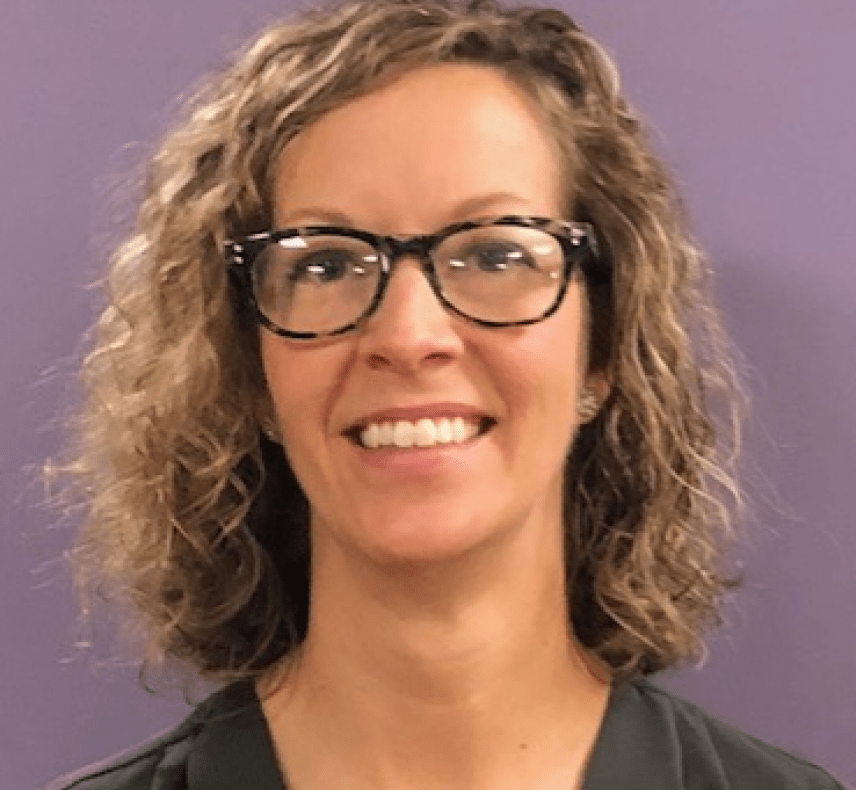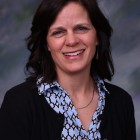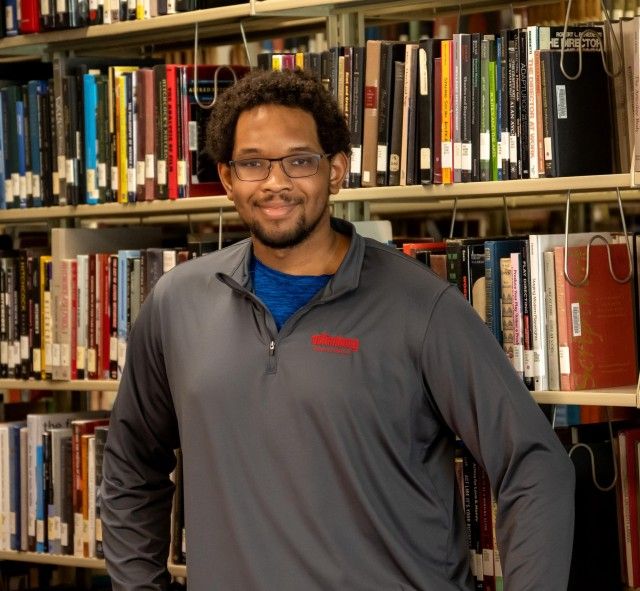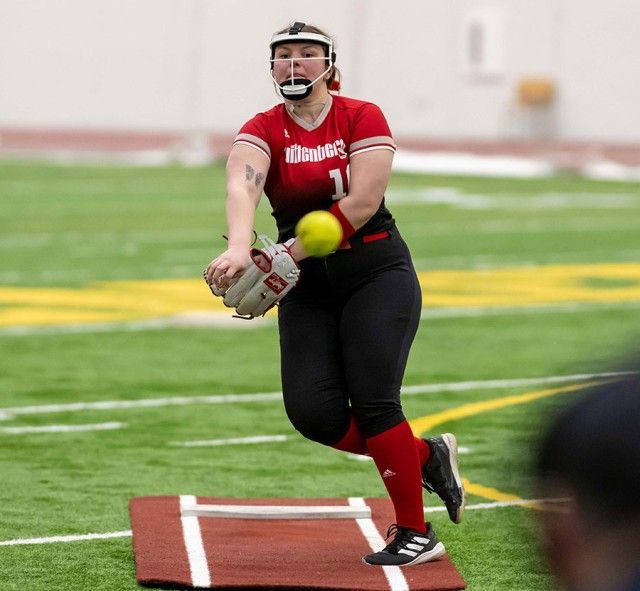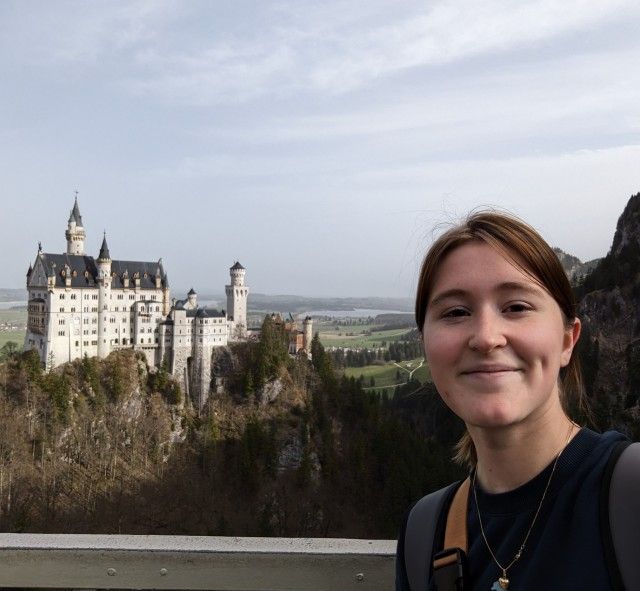Joining the faculty in 2018 as one of the first professors of practice to be hired by Wittenberg, Erin Hill teaches courses in adolescent development, English Language Arts (ELA) reading and writing methods, and arts integration. She also supervises student teachers. Having worked with Clark County Exemplary Writers, Nashville Metro Public Schools Young Writers, and Dayton Muse Machine, she has been a leader in arts program development throughout her career. She recently took time to answer some questions about the role of a professor of practice, her teaching experiences at Wittenberg, and her thoughts on the impact of COVID-19 on education at all levels.
Wittenberg: Please describe your background in teaching and what led you to change paths to teach at Wittenberg.
Hill: It was my good fortune to have had what I think of as Hall of Fame teachers as a student in the Clark County schools – with a special nod to Visha Ritter and Susan Shively, my profoundly formative high school English teachers. Those positive school experiences motivated me to become an educator myself, and I was particularly interested in the democratic notion of excellent, equitable, accessible education for all students. Since earning my undergraduate degree in English education in 1997, I’ve taught in a variety of different public schools around the United States, from South Charleston, Ohio, to Nashville to the Bronx, and I have learned so much from my students, my colleagues, and the unique communities that have invited me into their schools.
I don’t think of joining Wittenberg as “changing paths” necessarily, but rather as moving from one lane to another – the destination is the same. I love learning, and I want students to love learning too. If students have a teacher who loves to learn and encourages that spirit in the classroom, then we’re doing something worthwhile, whether that’s in a pre-school class or a graduate class. I believe in the transformative power of learning, and as Rita Pierson, one of my teaching sheroes, said, “Teaching and learning should bring joy.”
Wittenberg: What is a professor of practice? From your perspective, what are the benefits to Wittenberg and the department of education to having a faculty member in this type of position?
Hill: Well, if you ask my dad, he will tell you that I’m a “practice professor,” which is probably the most accurate description!
Technically, a professor of practice is an educator who brings prior career and field experience to the disciplines in which they teach. Business departments have a long history of employing professors of practice, experts with years of field experience as accountants, financial advisors, CEOs, marketing managers, and so on.
I was hired as a professor of practice in the education department because I had 20 years of practice and experience as a public high school English teacher. That doesn’t mean that I have all the answers – because teaching and learning are not about answers. But it does mean that I have had a long time to practice, to make mistakes, to learn, and to grow as an educator in a variety of different school settings. I hope that experience is of some use to our teacher candidates.
Wittenberg: Brian Yontz, associate professor and chair of education, describes you as “an author, artist, and sports fanatic.” Please elaborate. Do these interests/passions influence how you teach or interact with your students?
Hill: Reconciling those identities has taken a lifetime of learning. When I was younger, I thought I had to choose between being an athlete and an artist. Now I understand how meaningful it is to integrate those identities. I love reading, writing, making art, playing the piano, traveling, and following my favorite teams and athletes, especially those on the social justice front lines – and I think all of these pursuits make me a better teacher. It sometimes makes for happier students, too – many have been the beneficiary of Schuler’s donuts, a celebratory tradition whenever Rafael Nadal, my favorite tennis player, wins a tennis tournament.
I love having different interests because it definitely helps me connect with a wide variety of students. Strong relationships are central to good teaching, and I just really enjoy learning what students care about and building from that point.
As an essayist, I am inherently curious and always asking questions to pursue threads and themes in my writing. Recently, that has taken the form of a series of essays about athletics. I’m enjoying that work, especially as I prepare to teach an honors seminar this fall about the power of narrative in sports.
Wittenberg: What has your experience teaching Wittenberg students been like? What are the rewards of educating college students to become future leaders in the nation’s school systems?
Hill: Teaching Wittenberg students has been meaningful. Most students are really involved on campus and in the community, so I appreciate their drive and engagement as they pursue their education. I think our students were also remarkably flexible and resilient over the course of the past 18 months. It wasn’t easy, and I respect their tenacity.
I appreciate that you said “future leaders” in the nation’s school systems. That’s exactly what we want for our students: we hope to prepare them to be not only great classroom teachers but also great teacher leaders on their grade level and department teams, in their buildings, in their districts, and in their communities.
The work is rewarding. There is nothing better than watching Wittenberg teacher candidates go out into our local schools, even in 100-level education classes, and start building strong relationships with K-12 students and cooperating teachers. They come back to campus so excited and energized! Being out in the field is central to teacher candidates’ learning, and it’s an honor to support our students as they grow and mature through that four-year process and beyond.
Wittenberg: Given the profound impact of COVID on the educational experience at all levels, what do you see as the challenges and potential benefits as school systems begin to return to “normal”?
Hill: COVID has been a devastating tragedy, both globally and nationally, and my primary thoughts are with those who have lost loved ones. I am extremely grateful to the health care workers and scientists who served and sacrificed during this time as well.
As an educator, I’m not necessarily interested in returning to “normal.” The past 18 months have highlighted disparities in our educational systems, and it would be a missed opportunity if we didn’t reflect on what we’ve learned and implement change moving forward. Those reflective conversations should take place collectively with educators, students, parents, and community members. Perhaps now more than ever, we see that schools are community institutions. COVID highlighted the role schools play in food security and child care. We also saw structural inequities like digital redlining that had significant consequences on student learning. Additionally, we would be wise to develop robust plans to address students’ mental and emotional health needs moving forward. The social isolation many students experienced during COVID is no small thing.
This is just a short list of examples. While the past 18 months have been about reacting to a difficult situation, I am hopeful that we can use what we’ve learned to proactively move forward on these challenges.
About Erin Hill: Hill earned her B.S. in English education from Taylor University and her M.A. in English and American literature from New York University. Her former students include sports writers, teachers, activists, actuaries, farmers, theatrical lighting designers, a unicyclist, and the entertainer Prince Royce. She lives in Yellow Springs, Ohio.


